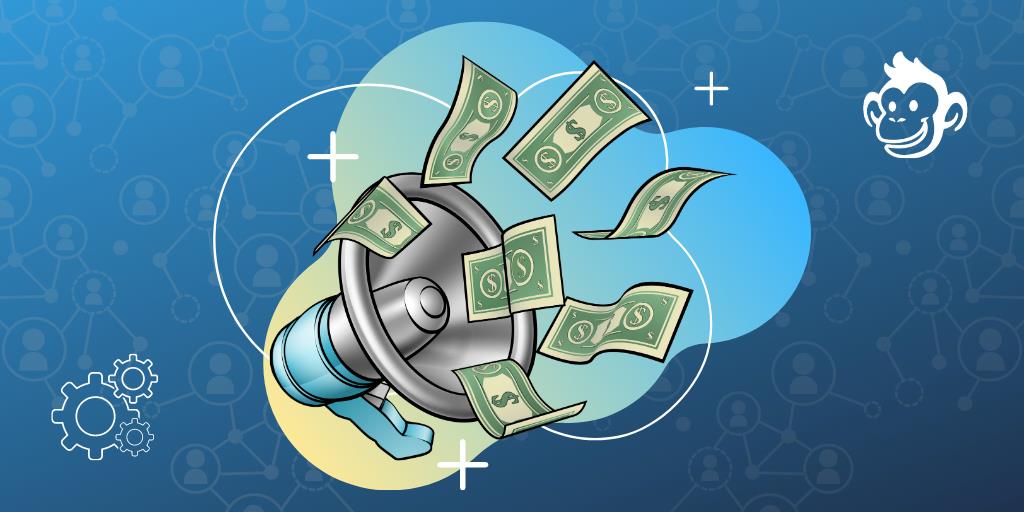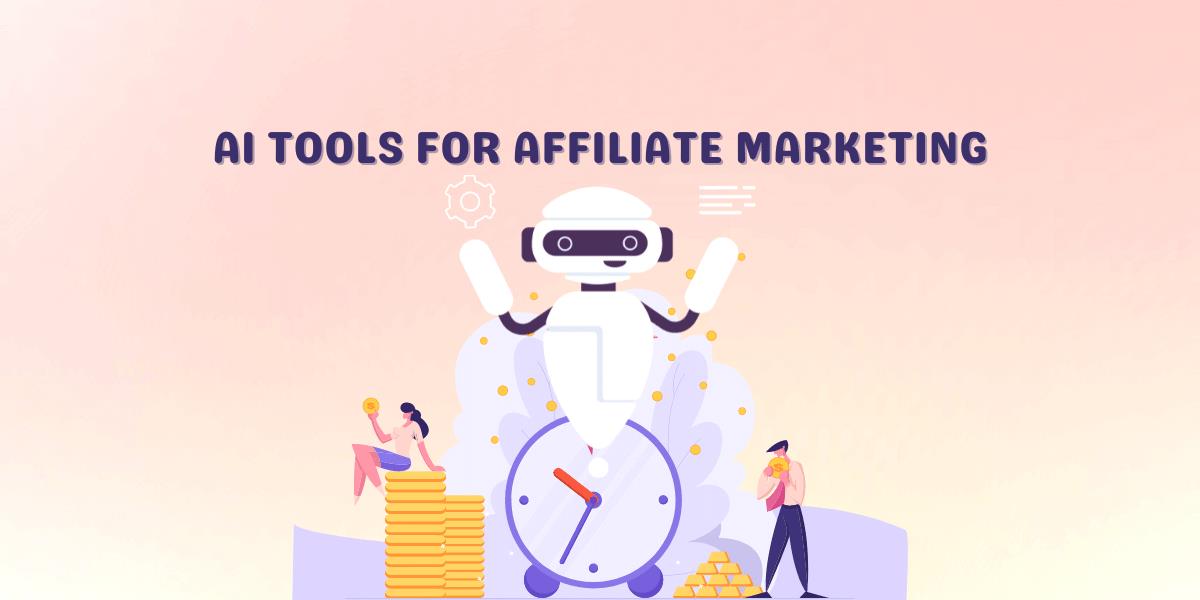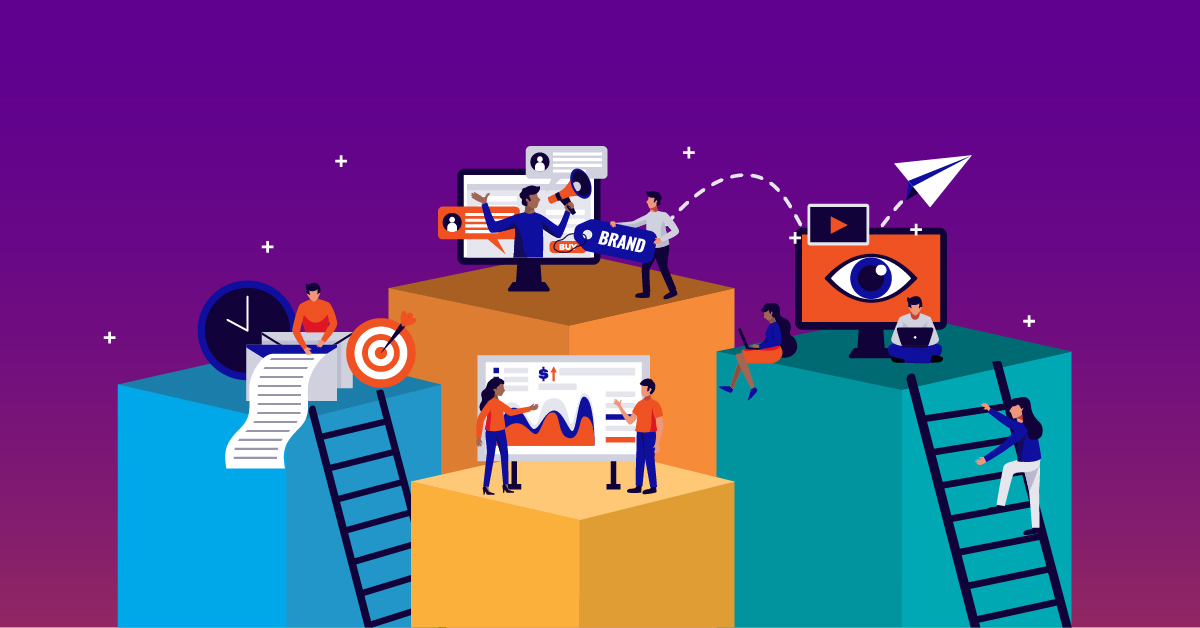
In the ever-evolving landscape of affiliate marketing, artificial intelligence (AI) has emerged as a powerful tool to revolutionize conversion rates. By leveraging AI-driven technologies, marketers gain access to enhanced audience targeting, personalized recommendations, predictive analytics, and real-time performance tracking.
This article explores the top 10 ways AI transforms affiliate marketing, empowering marketers to optimize ad campaigns, streamline testing, and make data-driven decisions that ultimately boost conversion rates.
Join us on this informative journey to unlock the potential of AI in driving affiliate marketing success.
Enhanced Audience Targeting
In today's digital marketing landscape, enhanced audience targeting has become a crucial strategy for businesses to reach their target customers with precision and efficiency. Personalized advertising and targeted messaging have become the norm, as businesses strive to connect with consumers on a more individual level.
By utilizing advanced data analytics and artificial intelligence, companies can now gather valuable insights about their audience's preferences, behaviors, and demographics. This allows them to create highly tailored advertisements that resonate with their target customers, increasing the likelihood of conversion. Personalized advertising not only enhances the customer experience but also improves the efficiency of marketing campaigns.
Personalized Recommendations
In today's digital age, consumers are inundated with countless options and information. This makes it crucial for businesses to provide personalized recommendations to cut through the noise and capture customers' attention.

By leveraging artificial intelligence and machine learning algorithms, businesses can analyze vast amounts of customer data to deliver tailored recommendations that are highly relevant to each individual's preferences and needs.
Personalized recommendations not only increase customer engagement but also enhance purchase conversions, resulting in a significant boost to conversion rates in affiliate marketing.
Increased Customer Engagement
Personalized recommendations have significantly boosted customer engagement, resulting in higher conversion rates and increased sales. By leveraging artificial intelligence (AI) algorithms, businesses can now provide tailored suggestions based on individual preferences and behaviors. This not only improves the user experience but also increases customer satisfaction.
Here are two ways in which personalized recommendations enhance customer engagement:
Personalized product recommendations: AI algorithms analyze customer data to offer product suggestions that align with their preferences and needs. This level of personalization creates a sense of connection and relevance, making customers more likely to engage with the recommendations and make a purchase.
Dynamic content customization: AI-powered systems can personalize website content, emails, and advertisements based on customer behavior and preferences. This customization allows businesses to deliver highly targeted and relevant information to users, increasing their engagement and driving conversions.
Overall, personalized recommendations powered by AI technology have revolutionized customer engagement, leading to increased conversion rates and improved sales.

Enhanced Purchase Conversions
Remarkably, the implementation of AI-powered personalized recommendations has significantly amplified purchase conversions for businesses. AI driven conversion strategies have revolutionized the way businesses optimize their conversion rates. By leveraging the power of artificial intelligence, businesses can now offer personalized recommendations to their customers, increasing engagement and ultimately leading to more conversions.
AI powered conversion optimization is based on advanced algorithms that analyze customer data, behavior, and preferences to deliver tailored recommendations. These recommendations are not only relevant but also timely, creating a sense of urgency and increasing the likelihood of purchase. Studies have shown that personalized recommendations can increase conversion rates by up to 30%.
Furthermore, AI can continuously learn and adapt to customer behavior, refining its recommendations over time. This allows businesses to constantly improve their conversion rates and provide a better shopping experience for their customers.
Predictive Analytics for Better Campaign Planning
Using predictive analytics, marketers can leverage data-driven insights to optimize their campaign planning and achieve better results. By utilizing predictive modeling and data-driven forecasting, marketers can make informed decisions based on historical data and future projections.
Here are two ways predictive analytics can revolutionize campaign planning:
Improved Targeting: Predictive analytics can analyze customer data and identify patterns, preferences, and behaviors to create highly targeted campaigns. Marketers can personalize their messaging and offers, increasing the likelihood of conversion.
Optimized Timing: Predictive analytics can also forecast the best time to launch a campaign or send marketing messages. By analyzing historical data, marketers can identify peak periods of customer engagement and optimize their campaign timing to maximize conversions.

With the power of predictive analytics, marketers can optimize their campaign planning, improve targeting, and enhance timing, ultimately achieving better results and higher conversion rates.
Embracing data-driven insights empowers marketers to make informed decisions that align with their audience's preferences and behavior, leading to successful and profitable campaigns.
Real-time performance tracking is a crucial aspect of any successful affiliate marketing campaign. It allows marketers to optimize their campaigns by analyzing data in real time, identifying what is working and what needs improvement.
With instant data analysis, marketers can make informed decisions quickly, leading to enhanced decision-making capabilities and ultimately, improved conversion rates.
Improved Campaign Optimization
One can achieve improved campaign optimization by utilizing advanced analytics tools and making data-driven decisions based on performance metrics. This approach allows marketers to track the progress of their campaigns and make adjustments in real time to optimize conversion rates.
Here are two key ways to achieve improved campaign optimization:
Campaign Tracking: Implementing effective campaign tracking allows marketers to monitor the performance of their campaigns across different channels and platforms. This helps identify which strategies are driving the most conversions and which ones need adjustments.

Conversion Optimization: By analyzing data and performance metrics, marketers can identify areas of their campaigns that are underperforming and make data-driven decisions to optimize those areas. This can involve A/B testing, refining targeting strategies, improving ad copy, or adjusting landing pages to increase conversion rates.
Instant Data Analysis
How can marketers leverage advanced analytics tools to achieve instant data analysis and improve their campaign performance?
One way is through real-time data monitoring and analysis. By utilizing advanced analytics tools, marketers can track and analyze data in real-time, allowing them to make immediate adjustments to their campaigns based on real-time insights.
This instant data analysis enables marketers to identify trends, patterns, and opportunities as they happen, allowing for faster decision-making and campaign optimization.
Additionally, AI-driven insights can further enhance the effectiveness of data analysis by leveraging machine learning algorithms to uncover hidden patterns and predict future outcomes.
Enhanced Decision-Making Capabilities
Enhanced decision-making capabilities in performance tracking empower marketers to optimize campaign strategies and achieve greater conversion rates. With the rise of AI-driven insights, marketers now have access to a wealth of data that can inform their decisions and drive better results.
Here are two key ways in which AI is revolutionizing decision-making in affiliate marketing:

- Automated Decision Making:
- AI algorithms can analyze vast amounts of data in real-time, enabling marketers to make faster and more accurate decisions.
- Automated decision-making processes can help marketers identify high-performing campaigns and allocate resources accordingly.
- Personalized Recommendations:
- AI algorithms can analyze user behavior and preferences to provide personalized recommendations, increasing the chances of conversion.
- By leveraging AI-driven insights, marketers can deliver targeted content and offers to individual users, improving the overall customer experience.
Automated Ad Optimization
Implementing automated ad optimization significantly improves conversion rates by utilizing advanced algorithms to target relevant audiences and deliver personalized content.
Automated bidding strategies powered by machine learning algorithms enable marketers to optimize their ad campaigns in real-time, ensuring maximum efficiency and effectiveness.
With automated ad optimization, marketers can bid on ad placements based on performance indicators such as click-through rates, conversion rates, and return on ad spend. These algorithms analyze vast amounts of data to identify patterns and trends, allowing marketers to make data-driven decisions and allocate their budgets more effectively.
Furthermore, automated ad optimization allows for continuous optimization and testing of different ad variations. Marketers can quickly identify which ad creatives, messaging, and targeting strategies are most effective, enabling them to make adjustments on the fly and achieve better results.
Improved Customer Segmentation
The article discusses the importance of utilizing improved customer segmentation techniques to better understand and target specific consumer groups. Customer segmentation analysis is a critical component of successful marketing strategies. By dividing customers into distinct groups based on common characteristics such as demographics, behavior, and preferences, businesses can tailor their marketing efforts to meet the unique needs and desires of each segment. This targeted approach allows for more personalized and relevant messaging, leading to higher conversion rates and customer satisfaction. Improved customer segmentation also enables businesses to identify new market opportunities, optimize product development, and enhance customer loyalty. Ultimately, implementing advanced customer segmentation techniques can significantly impact a company's bottom line and help them stay ahead of the competition.
Benefits of Improved Customer Segmentation:
- Enhanced understanding of customer needs and preferences.
- More effective and targeted marketing campaigns.
Strategies for Implementing Improved Customer Segmentation:

- Collecting and analyzing customer data from various sources.
- Utilizing advanced analytics tools and technologies for segmentation analysis.
Dynamic Pricing Strategies
Effective implementation of dynamic pricing strategies can maximize profitability and optimize revenue generation in today's competitive market.
Dynamic pricing involves adjusting prices in real-time based on various factors such as demand, competition, and customer behavior.
By utilizing competitor analysis, businesses can gain valuable insights into their competitors' pricing strategies, allowing them to make informed decisions regarding their own pricing.
Data-driven pricing decisions can lead to increased sales and customer satisfaction. For example, if a competitor lowers their prices, a business can respond by adjusting their prices accordingly to remain competitive.
On the other hand, if demand is high for a particular product, prices can be increased to capitalize on the opportunity.
Intelligent Chatbots for Instant Customer Support
As technology continues to advance, businesses are increasingly relying on intelligent chatbots to provide instant customer support, ensuring timely and efficient resolution of customer inquiries and concerns. AI-powered customer service has revolutionized the way businesses interact with their customers, offering personalized assistance and round-the-clock availability.
Here are some key benefits of using intelligent chatbots:

Improved response time: Chatbots can instantly respond to customer queries, reducing waiting time and increasing customer satisfaction.
Cost-effective solution: Implementing chatbots can significantly reduce customer service costs by automating repetitive tasks and freeing up human agents for more complex issues.
AI-driven sales funnel optimization: Chatbots can analyze customer data and behavior to identify potential leads, recommend personalized products or services, and guide customers through the sales process.
Enhanced customer experience: Chatbots can provide personalized recommendations, offer real-time support, and remember previous interactions, creating a seamless and personalized customer experience.
With AI-powered customer service, businesses can streamline their operations, improve customer satisfaction, and optimize their sales funnel for maximum conversions.
Streamlined A/B Testing
Streamlined A/B testing is a crucial tool for optimizing conversion rates in affiliate marketing.
By employing AI-driven algorithms, testing efficiency is significantly improved, allowing for faster and more accurate analysis of different variations.

This enables marketers to make data-driven decisions in real-time, resulting in improved conversion rates and ultimately, increased revenue.
Ai-Driven Testing Efficiency
While incorporating AI-driven testing into our processes, we have observed a significant increase in testing efficiency. AI-powered testing automation has revolutionized the way we optimize conversion rates in affiliate marketing. Here are two key ways AI is transforming the testing landscape:
Automated Test Design: AI algorithms can analyze vast amounts of data and generate test designs that are more effective in identifying conversion-boosting strategies. This eliminates the need for manual test design, saving time and resources.
Real-time Analysis: AI algorithms can analyze test results in real-time, providing instant insights into the performance of different elements on a website or landing page. This enables marketers to quickly make data-driven decisions to optimize conversion rates.
By leveraging AI-driven conversion optimization and AI-powered testing automation, marketers can streamline their testing processes, improve efficiency, and ultimately increase their affiliate marketing conversion rates.
Embracing AI technology allows marketers to stay ahead of the competition and achieve greater success in their campaigns.
Improved Conversion Rate
To achieve an improved conversion rate, marketers can implement efficient and effective A/B testing strategies.

Conversion rate optimization is a critical aspect of any marketing campaign, as it directly impacts the success and profitability of a business. One powerful tool that can aid in this process is AI-powered conversion strategies.
AI technology can analyze vast amounts of data and make data-driven decisions to optimize conversion rates. By leveraging AI algorithms, marketers can identify patterns and trends, personalize content, and target specific audiences with precision.
AI can also automate and streamline processes, saving time and resources. Additionally, AI can provide real-time insights and recommendations, allowing marketers to make informed decisions and continually optimize their conversion strategies.
Real-Time Data Analysis
By harnessing the power of AI algorithms and employing real-time data analysis, marketers can effectively analyze user behavior and optimize their conversion rates in affiliate marketing. With the advancement of machine learning algorithms, marketers can now automate the process of data collection and analysis, enabling them to make data-driven decisions in real-time. This allows them to identify patterns and trends in user behavior, understand what drives conversions, and optimize their marketing strategies accordingly.
Benefits of AI-powered real-time data analysis in affiliate marketing include:
Automated reporting: AI algorithms can generate comprehensive reports on user behavior, conversion rates, and campaign performance automatically, saving marketers time and effort.
Improved targeting: Real-time data analysis enables marketers to identify high-value customers and target them with personalized offers and content, increasing the likelihood of conversion.

Data-driven Decision Making
Through the utilization of comprehensive data analysis and rigorous statistical modeling, data-driven decision making empowers businesses to make informed and strategic choices that drive growth and optimize performance.
One key aspect of data-driven decision making is data visualization, which allows businesses to present complex data in a visually appealing and easily understandable format. This enables decision-makers to quickly identify patterns, trends, and insights that might otherwise be difficult to discern.
Additionally, machine learning algorithms play a crucial role in data-driven decision making by analyzing large volumes of data to uncover hidden patterns and make accurate predictions. By leveraging these algorithms, businesses can automate decision-making processes and make real-time adjustments to their strategies.
Ultimately, data-driven decision making enables businesses to make more efficient and effective choices, leading to improved outcomes and a competitive advantage in the market.
Frequently Asked Questions
How Does AI Contribute to Enhanced Audience Targeting in Affiliate Marketing?
Enhanced targeting algorithms and improved customer segmentation are key contributions of AI in affiliate marketing. With AI's ability to analyze vast amounts of data, marketers can identify and target specific audience segments, resulting in higher conversion rates and more effective marketing campaigns.
What Are the Benefits of Using Personalized Recommendations in Affiliate Marketing?
Using personalized recommendations in affiliate marketing offers several benefits. It improves customer engagement by providing tailored suggestions, leading to increased conversion rates. This, in turn, generates higher revenue and enhances the overall effectiveness of marketing strategies.
How Does Predictive Analytics Help in Better Campaign Planning for Affiliate Marketing?
Predictive analytics is a valuable tool in campaign planning for affiliate marketing. It enables improved decision making by leveraging data-driven insights, leading to more targeted and effective campaigns. This, in turn, can result in increased ROI for affiliate marketers.

Can You Explain the Concept of Real-Time Performance Tracking in the Context of Affiliate Marketing?
Real-time performance tracking is a crucial concept in affiliate marketing, where AI technologies play a significant role. It enables marketers to monitor and analyze campaign performance instantly, allowing for data-driven decision-making and optimization to maximize conversion rates.
How Does Automated Ad Optimization Work and How Does It Impact Conversion Rates in Affiliate Marketing?
Automated ad optimization techniques leverage AI technology to continuously analyze data and make data-driven decisions to improve conversion rates in affiliate marketing. These conversion rate optimization strategies have a significant impact on driving higher conversions and maximizing ROI.
 Network marketingWork from home jobsEntrepreneurshipAffiliate marketingFinancial freedomPrivacy PolicyTerms And Conditions
Network marketingWork from home jobsEntrepreneurshipAffiliate marketingFinancial freedomPrivacy PolicyTerms And Conditions
